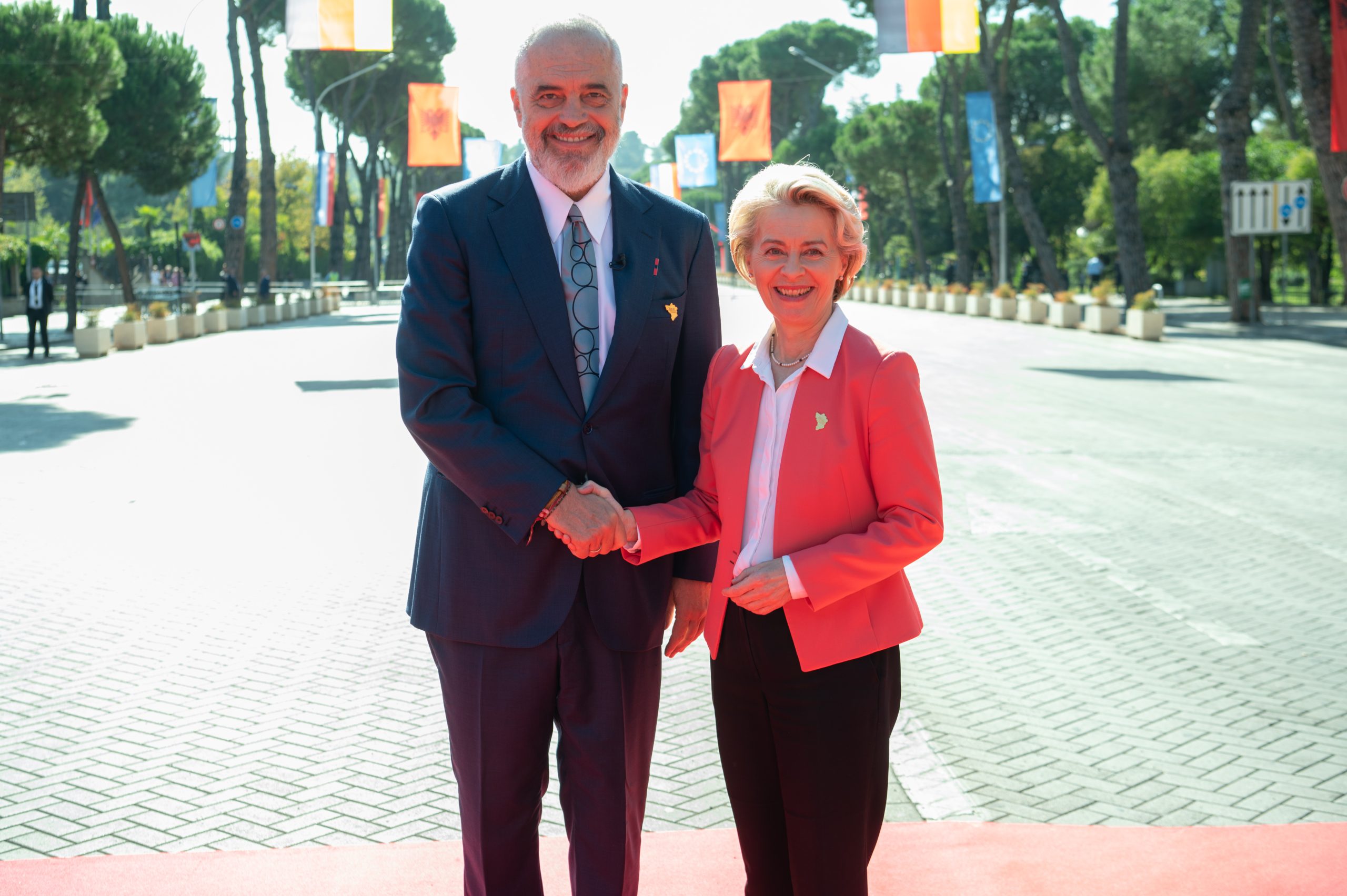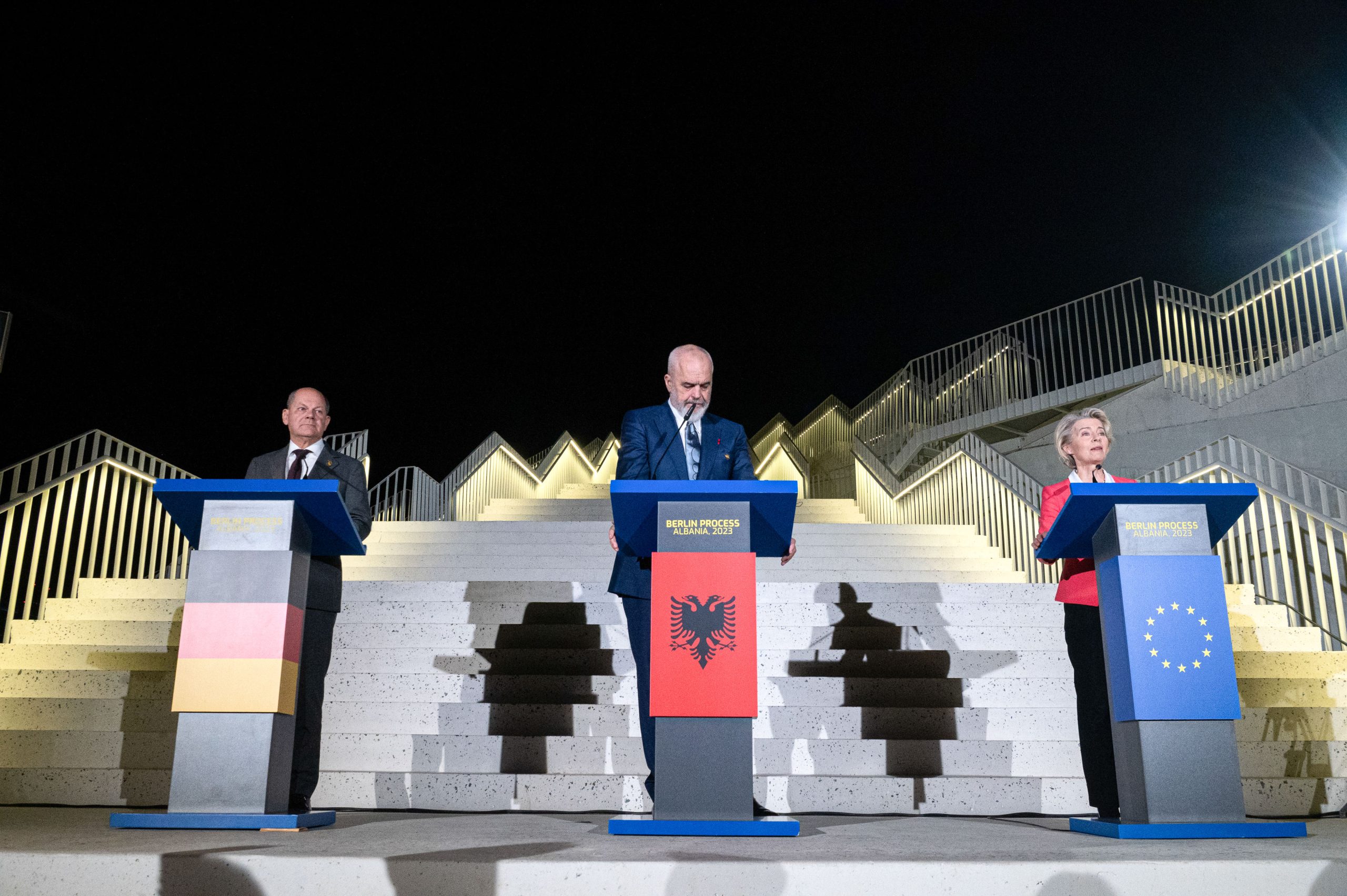The summit of the leaders of the European Union and the Western Balkans within the framework of the Berlin process was held in Tirana. It is the first time that such a meeting is held outside the EU countries.
The President of the European Commission, Ursula von der Leyen, assessed that the previous period in the work of the Berlin Process was very successful.
“But a lot remains to be done. We need to bring our economies even closer, and we need to speed up the reforms for accession. This is why I presented to the leaders our Growth Plan. If implemented, the new Growth Plan has the potential to double the size of the Western Balkan economies still in this decade.
It has four pillars. The first pillar of the Plan is bringing the Western Balkans into the Single Market. We basically open the door of the Single Market in seven key areas for the Western Balkan companies, already now. Just to give you a few examples on customs cooperation, e-commerce, cashless payments, road transport, electricity, roaming – just to name a few.
The second pillar is that the Western Balkans themselves have to complete their Common Regional Market. If they complete their Common Regional Market, this could increase the GDP of the Western Balkans by 10%. So, the Western Balkans also need to open their own markets to their five neighbours and partners.
The third pillar is reforms. If we want to give access to the Western Balkans to the European Single Market, of course, there needs to be a level playing field, the same rules and standards. This means reforms are necessary. And these reforms will also bring the Western Balkans closer to membership. These reforms will also make the Western Balkans even more attractive for European investors and make our respective economies – which is very important – converge. Because today, we have a situation where the Western Balkan economies are at 35% of the EU average. So there is a lot of work to be done to have more convergence of the economies.
Finally, the fourth pillar of the Plan is, if reform efforts are being done, they will be matched by increased EU funding for investment. In other words, we have proposed a EUR 6 billion investment package. This is composed of EUR 2 billion in grants and EUR 4 billion in loans. The same logic applies like to our investment plan NextGenerationEU for the Member States. That is investment and reforms. Funds will be released upon delivery of reforms. So it is conditional. It works very well in the European Union. I am deeply convinced it will work in the Western Balkans, too.”

The goal is to make significant steps forward in the reform process and regional economic cooperation, says the President of the European Commission.
“That is why we are here. And we have laid a good foundation already with our EUR 30 billion Economic and Investment Plan. It is delivering. Half of the Plan, EUR 16 billion, are actually already deployed. But more needs to be done.
Our economies, the Western Balkans and the European Single Market, are still too far apart. The Western Balkan economies are 35% of the EU average. So, we really have to tap into the potential that is here in the Western Balkans and get it closer to the European Single Market. And this is what the Growth Plan is all about. We know that, from the experience of enlargement, the power of enlargement of course lies in the values that unite us with the countries that joined the European Union step by step. But the second power is the economic development. Whenever there was an enlargement, not only those countries who accessed the European Union had a huge boost in their economic development because they joined the Single Market, but also the European Union improved because the Single Market got bigger.
And this is now the principle of the Growth Plan. We want to basically open in specific areas the doors of the Single Market, the European Single Market, to Western Balkan companies. And we have to engineer this now. We are opening it in areas like free movement of goods and services, road transport, energy, electricity, the EU’s Digital Single Market, and, very importantly, making cashless payments easier with a single European payment area, just to name a few elements.
But of course, opening the door is not enough. The Western Balkan countries also need to complete their Common Regional Market. And this means that it is a condition that the Western Balkan countries also give access to their neighbours to their market [give their neighbours access to their market]. In other words, if I turn it around, if there are blockages, the only one you can block is yourself. The others will move on.
And to move on, reforms are needed, deep-rooted reforms, also to improve the business climate, to make the environment more attractive. These reforms will be accompanied by funding for investment from the European Union, if they take place. This Growth Plan is a very strong incentive. It is an incentive to open the doors economically, but also to ask for opening the borders between the Western Balkan countries and to do the necessary reforms. With that comes the funding for investment.”
In addition to the meetings at the summit, President von der Leyen also attended the opening ceremony of the College of Europe campus in Tirana.




